Reply To:
Name - Reply Comment
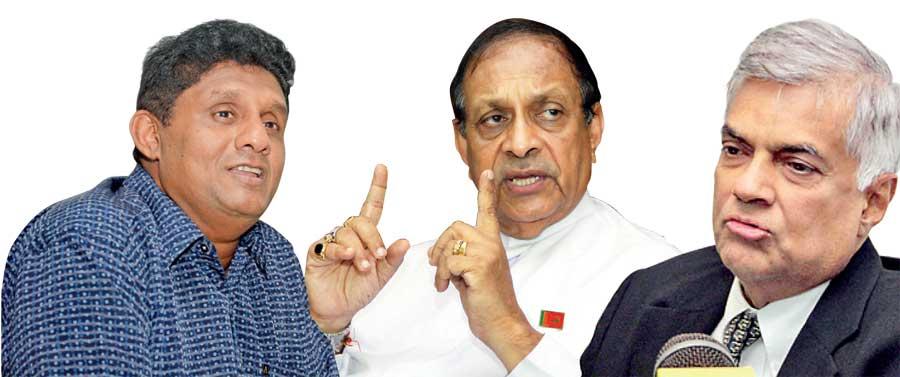
Apart from the United National Party (UNP) currently facing a severe problem caused by the phone-tapping by its Parliament Member Ranjan Ramanayake, the party seems to fail to resolve its infighting over its leadership before the forthcoming Parliamentary elections. The party has been holding discussion at various levels for the past several months on the issue, but it has always been back to square one after each discussion during which the final decision has been postponed, as if a ritual. 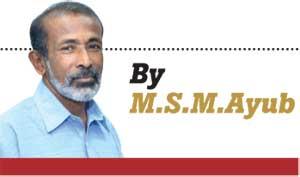
As the 19th Amendment to the Constitution has created a dual power in the country, The UNP is also facing a dual power crisis within the party, with its leader Ranil Wickremesinghe having the majority support in the Working Committee, the party’s decision making body while the Deputy Leader Sajith Premadasa having won the support of its Parliamentary group and the grass-root level members across the country.
The police raid on Ramanayake’s residence at the Parliament members’ housing complex in Madiwela and the subsequent controversy over the recording of phone conversations by him has somewhat eclipsed the UNP’s leadership tussle. Though it might be a solace to Wickremesinghe for the moment, it would delay the resolution of the leadership issue ultimately resulting in the party’s preparations for the General elections, which are weeks away, being hampered.
President Gotabaya Rajapaksa would most probably dissolve Parliament in early March once he is empowered to do so under the 19th Amendment, in order to change the composition of the legislature in his favour. Thus there is not much time for the UNP to resolve its internal scuffle which there is a possibility of the party being wiped out at the approaching election.
This is not the first time Mr. Wickremesinghe had to come upon rebellions from within his party. Since 2001 several times his leadership was challenged and every time party’s election defeats were cited as reasons behind the agitations. The frustration of the rank and file of the party is not unfounded as since the defeat of the UNP at the Presidential as well as the General elections in 1994, after having ruled the country for 17 years, the party failed to install a stable government, despite it being voted into power twice - in 2001 and 2015.
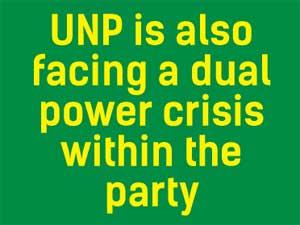 In spite of the UNP having won the 2001 December General Elections, its administration came to an abrupt end just in two years and two months when President Chandrika Kumaratunga dissolved the Parliament on February 7, 2004. She did so at the instance of the Janatha Vimukthi Peramuna (JVP) over differences on the peace talks between the government and the LTTE.
In spite of the UNP having won the 2001 December General Elections, its administration came to an abrupt end just in two years and two months when President Chandrika Kumaratunga dissolved the Parliament on February 7, 2004. She did so at the instance of the Janatha Vimukthi Peramuna (JVP) over differences on the peace talks between the government and the LTTE.
And subsequent to the election victories in 2015, within three years into its administration the UNP as well as its government had run into storms, especially with the local government elections defeat in 2018, threatening the survival of its leadership again.
In a way, the frustration within the UNP over the election results since 1994 is further justifiable as except for the 2001 Parliamentary elections the party had failed at all national, provincial and local elections. It came to power in 2015 not on its own but with the help of the Sri Lanka Freedom Party (SLFP) faction led by Maithripala Sirisena.
There had been four major revolts against Wickremesinghe - in 2001, 2010, 2018 and 2019 - and interestingly, the party after two of those crises – in 2001 and 2014 - succeeded in major elections instituting its rule over the country and putting an end to the revolts as well. However, the current leadership tussle seems to be a far cry from the previous ones when the leader had the support of the majority members of the Parliament and at the grass-root level. That is the challenge the embattled leader is facing this time.
An interesting fact in respect of these rebellions against the leadership was that every time the party leader’s remedy had been a suggestion to appoint a leadership council but never had been materialised to the satisfaction of the rebels. Yet, he survived.
In 2001, it was party General Secretary Gamini Athukorale and former Speaker W.J.M.Lokubandara were in the forefront against Mr. Wickremesinghe. There was a failed attempt to oust him while he was in Norway in July2001. The rebels then wanted to appoint Karu Jayasuriya as the leader. The party leader suggested appointing a leadership council. And the suggestion was dragged on until the general election held in that year at which the UNP came to power with Wickremesinghe assuming premier’s office. The hope for the leadership council vanished in to the thin air.
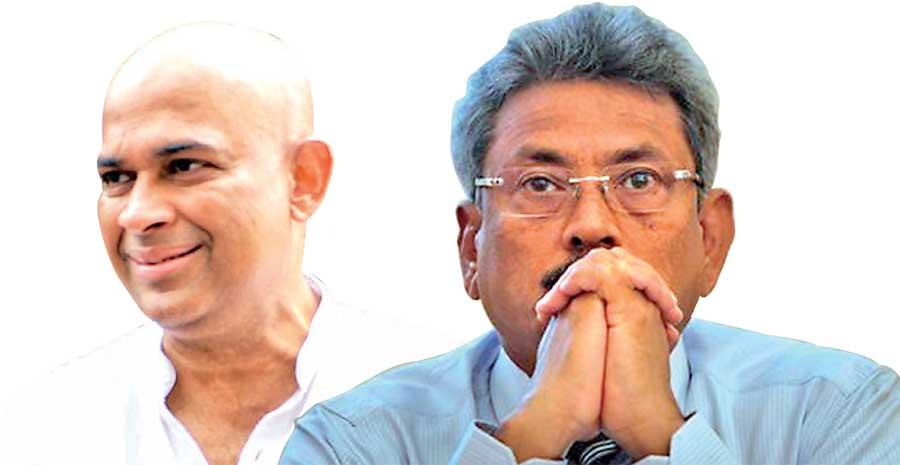
Then in 2010 Sajith Premadasa challenged Wickremesinghe’s leadership and the row lasted till 2014 when Mr. Wickremesinghe in fact appointed a leadership council in order to pacify his 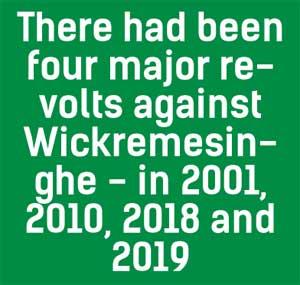 adversaries within the party. Though it was not up to the satisfaction of the rebels, the premature Presidential election announced by former President Mahinda Rajapaksa saved the day for Wickremesinghe.
adversaries within the party. Though it was not up to the satisfaction of the rebels, the premature Presidential election announced by former President Mahinda Rajapaksa saved the day for Wickremesinghe.
Maithripala Sirisena who won that election appointed Wickremesinghe the Prime Minister and eventually the leadership council was not heard about.
In the wake of the defeat of the two ruling parties - UNP and the SLFP - at the local council elections in 2018, the then Minister Palitha Range Bandara openly challenged the party leader and Prime Minister RanilWickremesinghe, claiming that he would bring in a no-confidence motion against the latter.
RanjanRamanayake who was a deputy minister then had openly stated several times that he wished to see a change in the party leadership. Eran Wickramaratna who was also a deputy minister called for the appointments of all office bearers of the party including the party leader be made by vote.
"An interesting fact in respect of these rebellions against the leadership was that every time the party leader’s remedy had been a suggestion to appoint a leadership council"
Mr. Wickremesinghe responding to the journalists who questioned him about the agitations within the party at a media briefing told that a collective leadership would be formed in the near 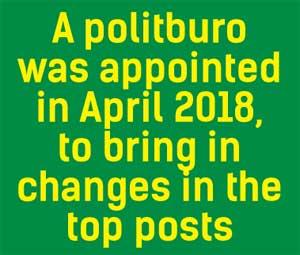 future. Accordingly, a politburo was appointed in April 2018, apparently to bring in changes in the top posts in the party.
future. Accordingly, a politburo was appointed in April 2018, apparently to bring in changes in the top posts in the party.
Although the politburo was not the top most body of the party, as the ones in the leftist parties and not empowered to take final decisions on the party reorganization either. Yet, it had recommended some changes in the top positions of the party and they were ratified by the party’s Working Committee before being implemented.
Thus, former General Secretary Kabir Hashim was appointed new Chairman while former General Secretary Akila Viraj Kariyawasam was reappointed to the same post and Sajith Premadasa and Ravi Karunanayake were reappointed as Deputy Leader and Assistant Leader respectively. However, the crux of the matter was that the party leader’s powers were intact, despite the politburo having been appointed. Later, the politburo was also not heard of.
It was against this backdrop that another rebellion against the party leadership emerged last year in the run-up to the Presidential election. It was the most successful uprising as the pressure on the leader was such that he had to accept Sajith Premadasa as the Presidential candidate of the party and later as the Opposition Leader. Now the supporters of Premadasa are demanding the party leadership for him and Wickremesinghe does not seem to budge.
The UNP or any other party, for that matter, being wiped out as a party is not a loss to the country or the people, but country is going to lose a strong Opposition which is a prerequisite to democracy.